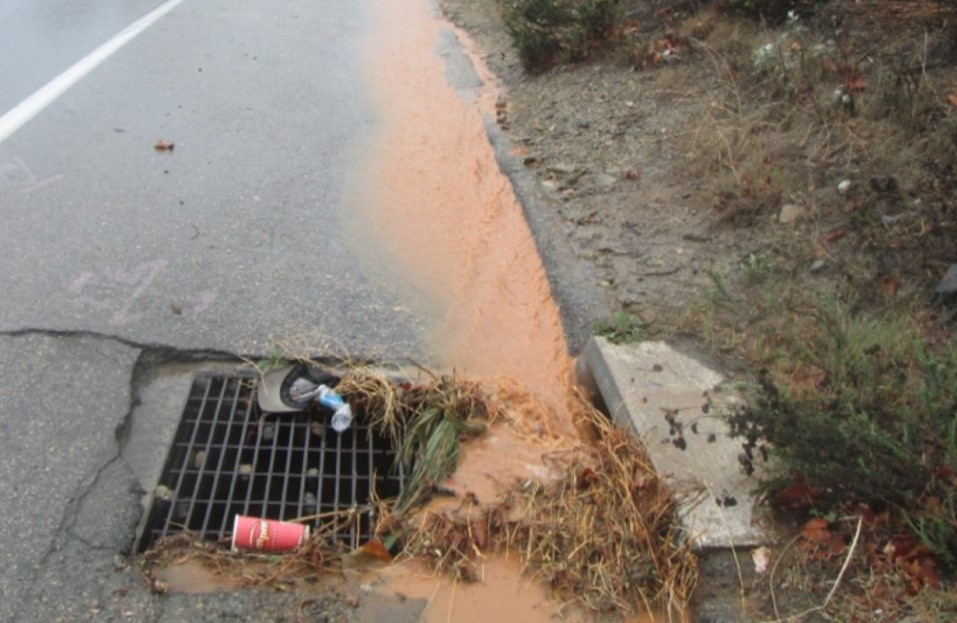
Written by Chase Dudum, CCKA Intern and USC Undergraduate Student
Earlier this year, Southern California experienced the impacts of Hurricane Hilary, which led to massive amounts of rain during the usually clear-sky summers. As we approach the late fall and El Niño winter, more rain is expected to hit throughout the state. Therefore, it is important to prepare for a wet winter by taking steps to reduce stormwater pollution.
Stormwater pollution is ubiquitous in urban and suburban environments where access to natural percolation is blocked by driveways, roofs, streets, and other impervious surfaces. Stormwater flows over these areas picking up pollutants like litter, motor oil, and fertilizers/pesticides. Stormwater carries these pollutants to storm drains that empty untreated into California waters. These pollutants create a toxic soup that leads to sickness from exposure while also harming aquatic life.
To do your part, below are 6 steps to prevent stormwater pollution at home:
- Proper Waste Disposal: Don’t dispose of items directly into storm drains or areas where they could easily find their way into nearby stormwater systems. Instead of discarding waste in storm drains, use trash bins for proper disposal and check chemical labels to see the correct procedure.
- Mindful Lawn Care: Reduce or eliminate the use of fertilizer or insecticide on your lawns to lower the amount of nutrients and chemicals that contribute to stormwater pollution. If you need to use fertilizer or insecticide, make sure to check the weather to see if rain is forecasted, and avoid using it if there is rain to reduce the chances of runoff by stormwater.
- Vehicle and Machinery Maintenance: Regularly check your car or other machinery for oil or other fluid leaks since even small leaks can contribute to stormwater pollution. If any leaks are found, make sure to repair them as soon as possible since timely repairs help reduce stormwater pollution.
- Smart Car Washing Choices: Choose commercial car wash services whenever possible since commercial car wash services recycle water which helps reduce water consumption and runoff that contributes to stormwater pollution. If washing at home, wash your car on a permeable surface to reduce runoff. Lastly, you should be mindful of water and soap while washing your car at home.
- Construction and Landscaping Project Practice: When undergoing landscaping projects involving dirt or mulch, make sure to cover them securely to prevent soil erosion and runoff of sediments contributing to stormwater pollution. After lawn projects, also make sure yard clippings are properly disposed of. For construction projects, ensure that debris is disposed of properly since it may contain pollutants that would harm the environment if stormwater carries it.
- Utilize Native Plants: Native plants are not only good for aesthetic appeal but are also good tools to help prevent stormwater pollution. Native plants are great for preventing soil erosion, which will help anchor the soil and prevent runoff during rain. Also, native plants require less water and fertilizer to grow, reducing the chance of stormwater pollution.
California Coastkeeper Alliance (CCKA) is at the forefront of preventing stormwater pollution throughout the state. Last year, we sponsored Senate Bill 891, which helped close an important loophole in stormwater permitting. CCKA also plans to introduce a bill in 2024 to install biofiltration along key roads to mitigate the impact of stormwater pollution on fish. As stewards of our local environment, let’s pledge to champion cleaner waters and reduce stormwater pollution at home.



